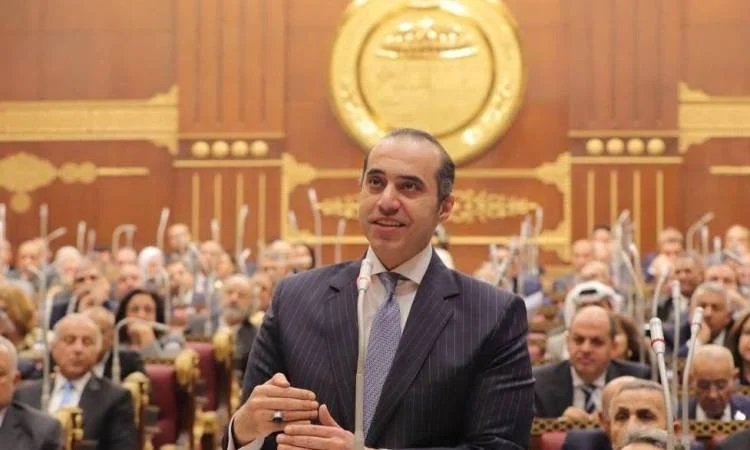CAIRO – 2 January 2025: The health affairs committee at the House of Representatives has announced amendments to controversial articles in the medical liability and patient integrity draft law, including the removal of the pretrial detention penalty for doctors.
The preliminary draft law, which contained provisions enabling detention, imprisonment and hefty fines for doctors in cases of malpractice, has sparked significant uproar among medical professionals over the past few weeks.
The recent amendments reported by several news platforms, however, cancel detention and limits imprisonment sentences to "serious" medical errors committed by medical service providers.
Last month, Egypt’s Deputy Prime Minister and Minister of Health Khaled Abdel Ghaffar dubbed the new legislation as "balanced," stating during discussions in the Senate that the law's philosophy aims to achieve balance and integration between the doctors and the patients.
He noted that the legislation provides criminal protection to doctors and provides a safe work environment for medical staff, amidst repeated incidents of assault on doctors.

The Egyptian Medical Syndicate has rejected the law’s application of criminal penalties for doctors committing medical mistakes whether unintentional, resulting from possible complications, or due to serious negligence that amounts to a crime.
The Senate approved the draft law despite the medical syndicate's rejection.
The syndicate had called for an emergency general assembly meeting on Friday, 3 January, to discuss the draft law but announced today postponing it for a month until the final version of the draft law is issued.
MEDICAL ERROR DEFINITION
Osama Abdel Hay, head of the Egyptian Medical Syndicate, told the press that the draft law conflates the definitions of "medical error" and "medical complications."
He stressed that the draft law overlooks instances such as bleeding after a safe surgical procedure or a sudden allergic reaction to a medication not recorded in the patient's history.
The syndicate’s head warned that the law might force some doctors to avoid intervening in complex and difficult cases due to the low probability of success.
Meanwhile, Minister of Parliamentary and Legal Affairs and Political Communication Mahmoud Fawzy reassured doctors that liability under the new draft law excludes known medical complications.
During the Senate discussions, he empashized that the draft law differentiates between medical errors and known complications, which do not require legal consequences.

DOCTORS’ RESERVATIONS
The draft law stipulates the formation of a supreme committee for medical liability and patient integrity, affiliated with the prime minister. The committee was initially named the “supreme committee for medical liability and patient (protection),” before the recent amendments.
This committee is defined as “the advisory body for medical errors, tasked with examining complaints, creating a database, and issuing guidelines to raise awareness of the rights of service recipients, in coordination with unions and relevant authorities.”
Doctors have raised concerns about the mechanisms for holding a physician accountable in the event of a medical error.
Abdel Hay stated that “the legislation did not seriously address the role of this supreme committee and made the referral to investigative authorities optional,” as reported by the Asharq Al Awsat news website in December.
The draft law includes 30 articles. Before the recent amendments, two of these articles (28,29) allowed for the imprisonment of doctors, in case their medical errors result in the harm, injury or death of the patient.
AMENDING THE DRAFT LAW
The committee canceled article 27, which is concerned with pretrial detention for medical service providers, as well as articles 28 and 29.
The parliamentary committee agreed to the syndicate's and doctors' demands to eliminate prison sentences for medical errors in general, limiting penalties to fines and confining prison sentences to cases of “serious error.”
--------------------------------------------------------------------------------------------------------
Before the amendments: Article 28 of the law punishes medical service providers committing medical errors that result in the patients’ injury by a maximum of one-year pruson and/or a fine of up to LE 50,000.
Before the amendments: The prison sentence becomes a maximum of two years and/or a fine of up to LE 300,000 if the medical error results in a permanent disability, or if the crime occurs as a result of a serious medical error, or if the service provider was under the influence of alcohol or drugs.
Before the amendments: If the medical error results in the death of more than three people, a prison sentence between one to five years becomes inevitable and irreplaceable by fine.
Before the amendments: Article 27 stipulated a minimum prison term of no less than six months and/or a fine of up to LE 100,000 for anyone causing a medical error that results in the death of a service recipient.
Before the amendments: If the medical error was classified as a “serious medical error,” or if the service provider was under the influence of alcohol or drugs at the time of the error, or refused to assist the victim or call for help when able, the article stipulated a prison sentence of one to five years and/or a fine ranging from LE 100,000 to LE 500,000.
Before the amendments: In such cases, if more than three people die, the prison sentence cannot be replaced by a fine and may be up to seven years.
Before the amendments: Article 29 stipulated orders of pretrial detention and its extension in crimes committed by the medical service provider during or because of the provision of these services.
--------------------------------------------------------------------------------------------------------
Instead, the committee created an article, numbered 27, stipulating a fine ranging from LE 100,000 to LE 1 million for anyone who commits a medical error causing actual harm to the recipient of the service.
Meanwhile, the prison sentence for a serious medical error ranges from one to five years and/or a fine of not less than LE 500,000 and not more than LE 2 million in cases of complications resulting from these errors.
REVISITING DEFINITIONS
In response to doctors’ concerns, the Health Affairs Committee has redefined “medical error” before approving the law on Wednesday.
Initially, the draft defined medical error as “any act or failure to perform a required medical procedure that does not adhere to established scientific principles or the ethics and traditions of the medical profession, as outlined in relevant laws or ethical charters issued by the Egyptian Health Council.”
The committee added a clause clarifying that a medical error is one “so serious that the resulting damage is certain and arises from negligence, recklessness, or lack of caution, especially if the service provider was under the influence of alcohol or drugs at the time of the error, or refused to assist the victim or call for help when able to do so.”
Furthermore, the amendments strengthen the role of the Supreme Committee in addressing doctors' liability, redefining it as a technical expert for investigating or trial authorities in cases related to medical liability, whether through assistance or through approved reports issued by the sub-committees it forms.
Additionally, the amendments changed the law's title to the "medical liability and patient integrity law," replacing the previous term "medical liability and patient protection law."
Comments
Leave a Comment